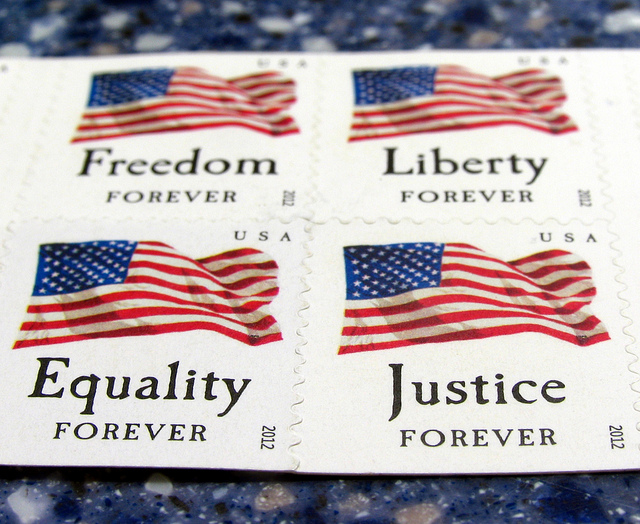 From algorithmic sentencing to workplace analytics, data is increasingly being used in areas of society that have had longstanding civil rights issues. This prompts a very real and challenging set of questions: What does the intersection of data and civil rights look like? When can technology be used to enable civil rights? And when are technologies being used in ways that undermine them? For the last 50 years, civil rights has been a legal battle. But with new technologies shaping society in new ways, perhaps we need to start wondering what the technological battle over civil rights will look like.
From algorithmic sentencing to workplace analytics, data is increasingly being used in areas of society that have had longstanding civil rights issues. This prompts a very real and challenging set of questions: What does the intersection of data and civil rights look like? When can technology be used to enable civil rights? And when are technologies being used in ways that undermine them? For the last 50 years, civil rights has been a legal battle. But with new technologies shaping society in new ways, perhaps we need to start wondering what the technological battle over civil rights will look like.
To get our heads around what is emerging and where the hard questions lie, the Data & Society Research Institute, The Leadership Conference on Civil and Human Rights, and New America’s Open Technology Institute teamed up to host the first “Data & Civil Rights” conference. For this event, we brought together diverse constituencies (civil rights leaders, corporate allies, government agencies, philanthropists, and technology researchers) to explore how data and civil rights are increasingly colliding in complicated ways.
In preparation for the conversation, we dove into the literature and see what is known and unknown about the intersection of data and civil rights in six domains: criminal justice, education, employment, finance, health, and housing. We produced a series of primers that contextualize where we’re at and what questions we need to consider. And, for the conference, we used these materials to spark a series of small-group moderated conversations.
The conference itself was an invite-only event, with small groups brought together to dive into hard issues around these domains in a workshop-style format. We felt it was important that we make available our findings and questions. Today, we’re releasing all of the write-ups from the workshops and breakouts we held, the videos from the level-setting opening, and an executive summary of what we learned. This event was designed to elicit tensions and push deeper into hard questions. Much is needed for us to move forward in these domains, including empirical evidence, innovation, community organizing, and strategic thinking. We learned a lot during this process, but we don’t have clear answers about what the future of data and civil rights will or should look like. Instead, what we learned in this process is how important it is for diverse constituencies to come together to address the challenges and opportunities that face us.
Moving forward, we need your help. We need to go beyond hype and fear, hope and anxiety, and deepen our collective understanding of technology, civil rights, and social justice. We need to work across sectors to imagine how we can create a more robust society, free of the cancerous nature of inequity. We need to imagine how technology can be used to empower all of us as a society, not just the most privileged individuals. This means that computer scientists, software engineers, and entrepreneurs must take seriously the costs and consequences of inequity in our society. It means that those working to create a more fair and just society need to understand how technology works. And it means that all of us need to come together and get creative about building the society that we want to live in.
The material we are releasing today is a baby step, an attempt to scope out the landscape as best we know it so that we can all work together to go further and deeper. Please help us imagine how we should move forward. If you have any ideas or feedback, don’t hesitate to contact us at nextsteps at datacivilrights.org
(Image by Mark K.)
